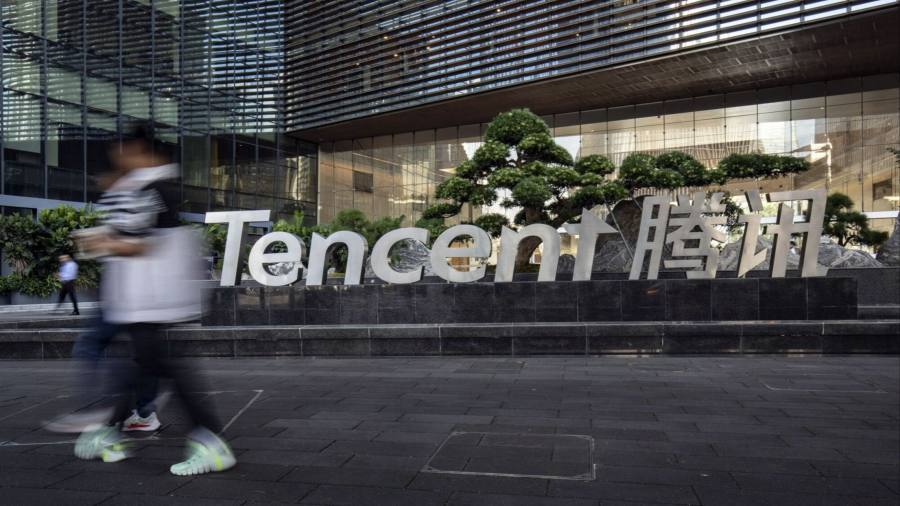
Receive free Artificial intelligence updates
We’ll send you a myFT Daily Digest email rounding up the latest Artificial intelligence news every morning.
Internet heavyweight Tencent unleashed its key generative AI technology on Thursday, declaring “war has begun” with about a dozen rivals fighting to be China’s national artificial intelligence champion.
China’s largest company by market value introduced “Hunyuan”, a large language model (LLM) of the type powering OpenAI’s ChatGPT, the US service that has inspired a legion of companies to try to emulate its success in AI.
“There are more than 130 large language models in China,” Tencent vice-president Jiang Jie told a launch event in the southern city of Shenzhen. “A war of a hundred models has begun.”
Tencent, which runs the WeChat super app and has extensive gaming interests, has begun by focusing on the enterprise. It launched AI cloud services in June for sectors including finance, media, travel and education.
Jiang said Tencent had “fully embraced large language models” and that Hunyuan had become the “backbone of our operations”. The LLM is the foundational AI model for more than 50 of its products, it said on Thursday, including Tencent Meeting, which has an AI-powered assistant to generate automated meeting notes.
It can also support tasks, including image creation, copywriting and customer service. Clients in China will now be able to access it to train models and build apps on top of it.
Tencent has trod carefully thus far while other tech groups, including TikTok owner ByteDance, search giant Baidu and image recognition company SenseTime have rushed out AI products.
Despite the popularity of WeChat, it has not disclosed any plans to launch a model or AI chatbot for consumers.
Last week, Beijing gave clearance for almost a dozen tech groups to release their AI products to the public in a move expected to help them improve their models and commercialise their technology. SenseTime, Baidu, ByteDance, voice recognition company iFlytek and AI start-up Zhipu have since released their chatbots to the public.
Jiang said Hunyuan was better than OpenAI’s GPT-4 LLM when it came to answering questions in Chinese about science and maths. He demonstrated it on stage in Shenzhen, with company staff asking the model to complete simple maths problems.
Boris Van, software analyst at Bernstein, said there was no obvious frontrunner among Chinese tech groups so far. “In the US, there is one company that is so clearly ahead of everyone else,” he said, pointing to OpenAI.
“China is drowning in chatbots,” he said, adding that it would be a challenge for companies to monetise their AI models by just trying to build the best foundational model. Companies would “need to target specific industries” and differentiate with sectoral knowhow, he said.
Investors have not been put off by the challenges in the case of Baidu. Its shares are up almost 20 per cent so far this year, boosted by the early release of its Ernie Bot ChatGPT-like service.